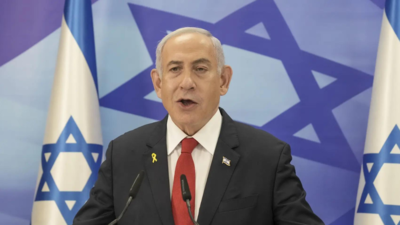
Israeli Prime Minister Benjamin Netanyahu on Sunday delayed the ceasefire deal with Hamas and reiterated that the ceasefire deal will not proceed "without a list of hostages."
"The prime minister instructed the IDF (military) that the ceasefire, which is scheduled to take effect at 8:30 am, will not begin until Israel has received the list of released hostages, as Hamas has committed to providing," the Israeli PM's office said.
Earlier, Netanyahu had said that Israel reserves the right to resume war, with US support, if necessary. Netanyahu demanded the hostages' names be provided by Sunday before the prisoner swap, amid uncertainty over the status of the 33 hostages.
Hamas responded to Netanyahu's allegations and said that the delay was due to "technical reasons".
"The delay in providing the names of those to be released in the first batch is due to technical reasons," it said.
On Saturday, Israel's Cabinet approved a ceasefire agreement for Gaza, set to release numerous hostages and temporarily halt the 15-month conflict with Hamas. This marks a potential turning point in the ongoing violence. Although Qatar and the US announced the ceasefire on Wednesday, delays were caused by last-minute complications raised by Prime Minister Netanyahu regarding Hamas.
The Cabinet's decision to meet beyond the Jewish Sabbath underscored the critical nature of these discussions, given traditional Jewish law restrictions on government activities during the Sabbath.
The Israel-Hamas ceasefire is set to begin on Sunday at 6.30 GMT, marking a crucial pause in the 15-month conflict. The deal, mediated by Qatar, the US, and Egypt, includes a hostage and prisoner exchange as the first step towards de-escalation.
Initially, three Israeli hostages will be released in return for Palestinian prisoners, with a total of 33 hostages to be freed in the first 42 days. In exchange, Israel will release hundreds of Palestinian detainees.
The truce, however, is temporary, with continued fighting and casualties reported on the eve of the agreement. Humanitarian aid is set to enter Gaza, and the deal is seen as a first step in broader negotiations. Netanyahu has said that Israeli forces will remain vigilant along Gaza's borders, with the possibility of resuming hostilities if needed.

 2 days ago
8
2 days ago
8










 English (US) ·
English (US) ·